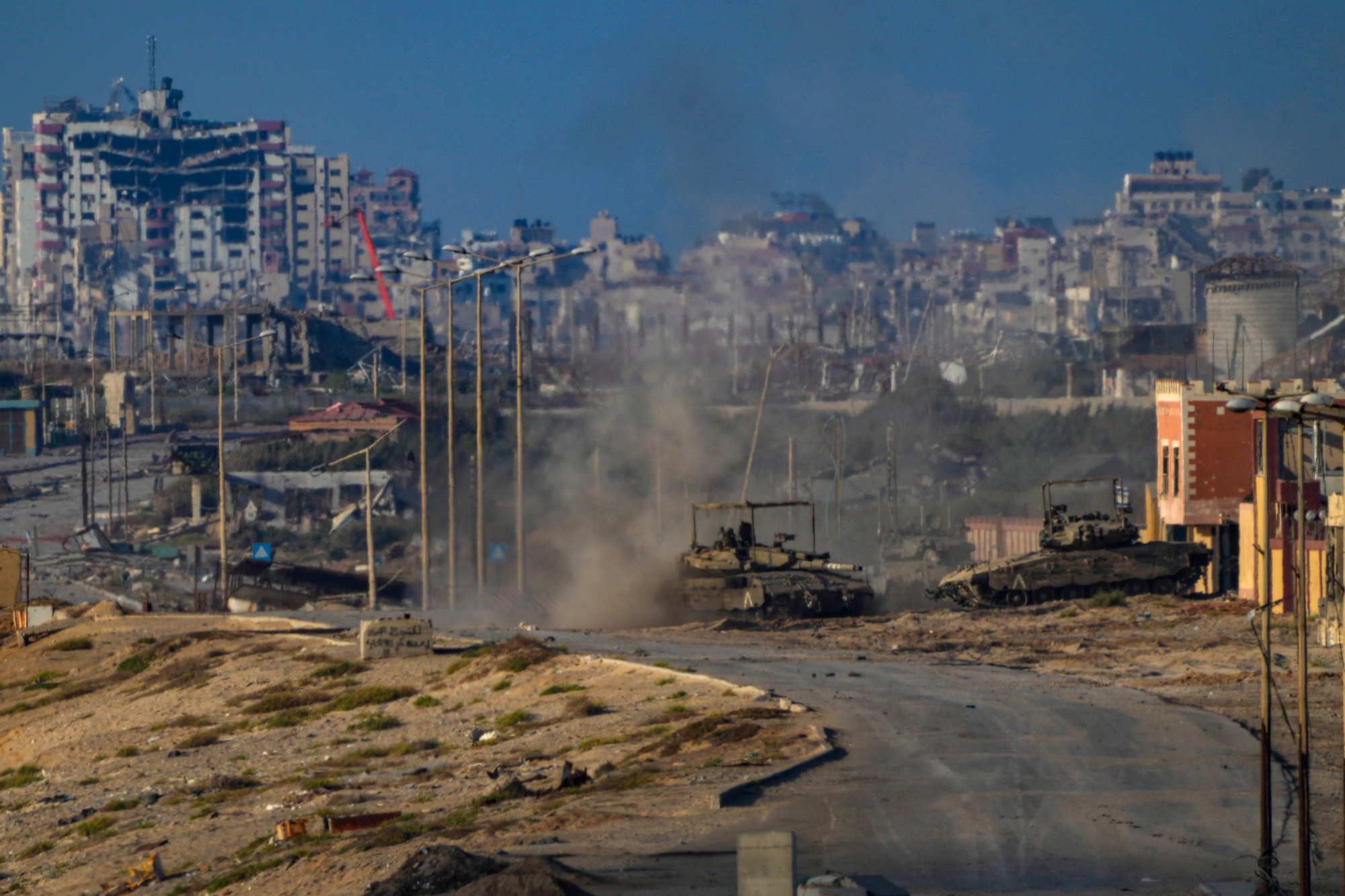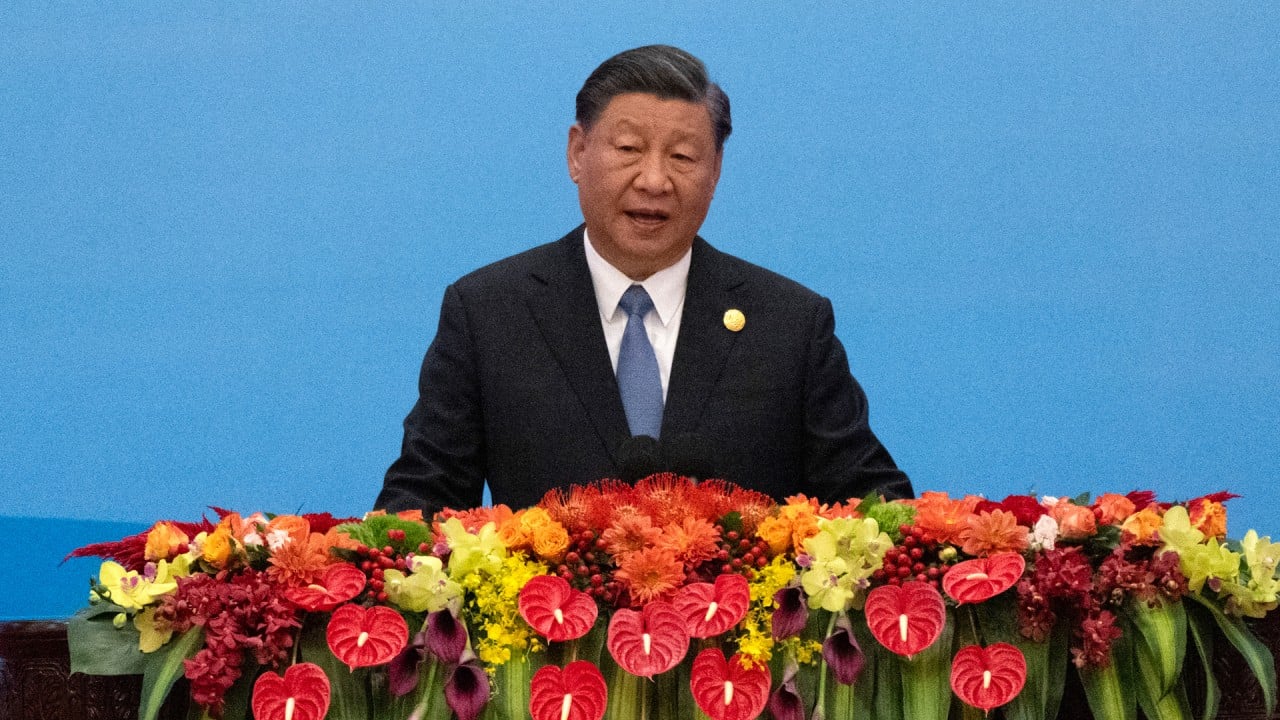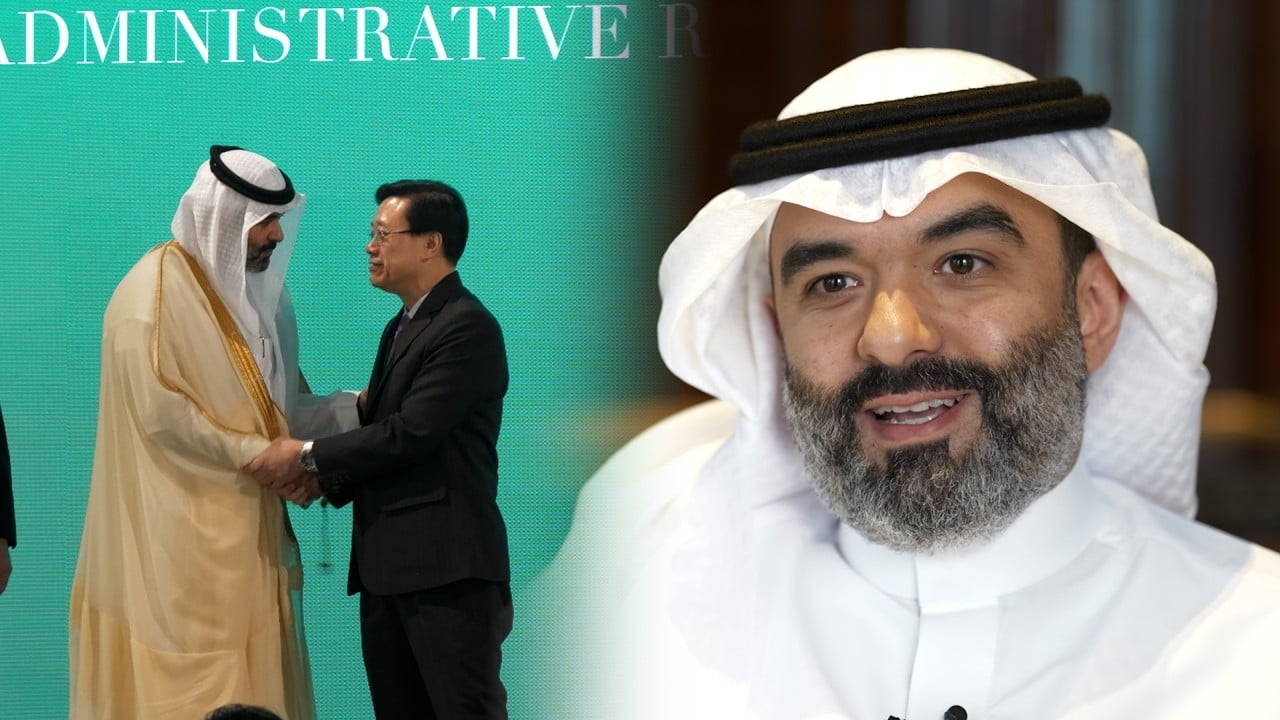
Jordanian minister banks on Middle East stability in courting Chinese investment
- China’s ties with Middle East go beyond trade, say analysts on World Economic Forum panel who argue Beijing could bear greater responsibility
“Security and stability is the fuel of growth … which is something we think will be back one day,” he said, when asked whether economic prospects for the Arab nation had dampened.
The crisis in Gaza – now in its ninth month and with no end in sight – is expected to dent economic growth in the Middle East. The International Monetary Fund has projected Jordan’s growth could slow to less than 2 per cent.
“To be honest, I’ll give you an answer not as a minister … I’ll just answer you as an Arab citizen. We’re worried [about] what’s happening in Gaza. It concerns us,” Hanandeh said.
“There is a pain in the heart of each and every Arab Muslim in the world. There is disappointment [in] what’s going on.”
China’s cautious approach towards the war – which has avoided condemning Hamas – has been criticised by Israel and some Western countries, but Jordan appreciated and valued Beijing’s position, Hanandeh said.
China has been one of the Middle East’s top trading partners and the minister was confident it would stay that way.
In describing Jordan’s economic relationship with China, Hanandeh likened Beijing to an older brother “who’s very skilful”, saying that “whenever something is needed, [China] immediately jumps on it”.
“They make it very cost effective, very fast and they just deliver it,” he added. “I do believe China will remain playing the role of a strategic [and] important trading and economical partner for Arab countries.”
Liu Qian, founder and chairwoman of advisory firm Wusawa Advisory, said China’s relations with the region started with trade and investment but had evolved beyond economics.
“A new defining theme of the relationship between China and the Middle East is really that China is increasing its economic influence [and] dominance in certain sectors, on certain countries,” she said, adding that there had also been growing frustration over Washington’s “incoherent and sometimes unreliable policies”.
The United States has long been a key player in the region but its influence has waned in recent years following its withdrawal from Afghanistan and abandonment of the Iran nuclear deal in 2018.
In one example, Liu cited China’s brokering of the historic peace deal between rivals Iran and Saudi Arabia as a reflection of Beijing’s influence in the region beyond economics, and spilling over into security and broader geopolitics.
“That sends a solid message that China is here to stay in the Middle East, and that China is here to expand its influence,” said Liu, who was formerly the managing director of The Economist Group in Greater China.

Other examples, including China’s naval drills in the Gulf of Oman and engagement with regional countries through its belt and road framework, were also clear signals that it “is not just in China’s interest but also in the Middle East’s interest to have an alternative power”.
Victor Chu, chairman and chief executive officer of First Eastern Investment Group, said he expected China and the Gulf region to become a “really comprehensive partnership”, given the speed at which Gulf states were developing.
“We’re actually at the beginning of a huge China-Middle East partnership, which will basically rival [the] other paramount relationship that we’ve known in the last 50 or 60 years,” he said.
In his assessment of the future of China-Arab relations, Chu said there was increasingly a role for China to play as a “constructive interlocutor”.
He said it would be in Beijing’s interest as it could dilute negative perceptions of China’s role in other parts of the world, and aid the push for stability – the precondition for economic and investment prospects in the region.
“That’s an enormous, vested interest for all sides, for China, and indeed other countries, to play a useful role,” said Chu, who co-chairs the World Economic Forum’s International Business Council.
“There are very few credible interlocutors left who can do honest brokerage, and the Chinese is one of them.”
According to Liu, China was keen to play a more active role but was mindful of the “extraordinary level of complexity on the ground”.
“Before China feels that it’s fully ready economically, geopolitically, militarily … it won’t dive fully into it,” she said.
Hanandeh was blunt in saying that tensions between Beijing and Washington was “not making our life … easy”.
“It’s a complex file, to be honest, to deal with,” he told the forum. “We have a very old, strong ally [in] the US … and China is an old friend and a trading partner for so many years.”
But he made clear that even as the Arab state counted Washington as a long-time partner, it still welcomed Chinese investors with open arms.
“We see there are so many opportunities for Chinese companies that they can tap … into the Arab world,” he said, adding that there were opportunities in sectors ranging from digital economy to agriculture to renewable energy.
“So the sky’s the limit and the door open.”




